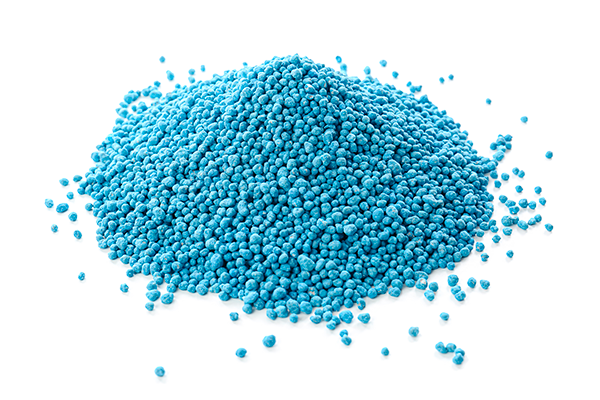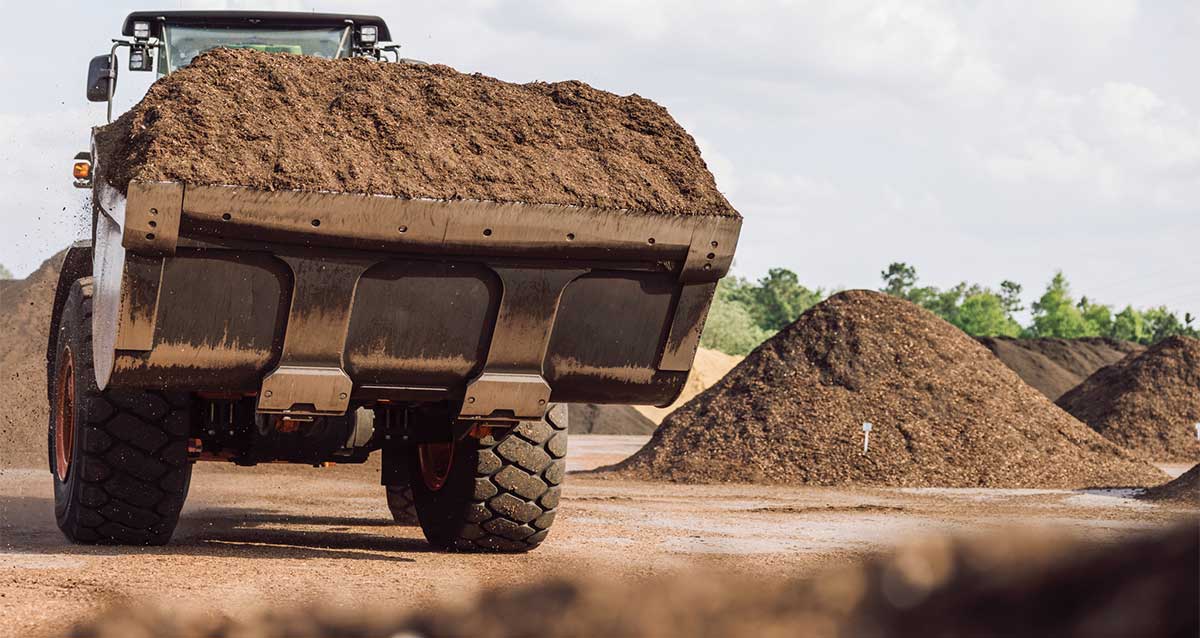The Science and Benefits of Compost
Compost—What is It Exactly?
In natural ecosystems, dead plants and animals decompose into the soil where their nutrients and carbon are recycled into new life. Composting is when humans initiate this natural process, recycling organic matter such as leaves and food scraps into compost that can be returned to the earth, restoring soil and improving plant health. This can be done on a small, individual scale at home, or in a large, commercial-scale operation.
At CompostUSA we further enhance and accelerate the natural biological process of composting by introducing a powerful inoculum (a proprietary blend of enzyme-producing microbes). The inoculum, developed by our partners at Harvest Quest, fundamentally reverses the physics of temperature generation in a compost pile, initiating the unique Modified Static Aerobic Pile (MSAP) composting process we employ.

The Biotechnology of Harvest Quest
By providing an ideal recipe (optimum levels of carbon, nitrogen, water, and oxygen), and favorable pile dimensions, microorganisms proliferate rapidly generating heat. The microbes feed on the materials added to the compost pile, using carbon and nitrogen to grow and reproduce, water to digest materials, and oxygen to breathe. The high temperatures eliminate pathogens and weed seeds and after a few weeks the end result is finished compost—stabilized organic matter that greatly enhances the biological, chemical and physical properties of soil.

COMPOST: Reduces Reliance on Synthetic Fertilizers
Compost is a slow-release nutrient source for plants. Unlike the nutrients in synthetic fertilizers, which can be released quickly, the diverse materials in compost break down at different rates, slowly releasing nutrients over a long period of time. Compost contains a much broader array of macro and minor nutrients than fertilizers and because compost both adds nutrients to soil and alters soil structure so that it retains nutrients more effectively, compost reduces the need for fertilizers.
COMPOST: Restores and Improves Soil Health
Adding compost to soil improves its structure and texture, making it more ideal for plant growth by adding organic matter. With higher percentages of organic matter, soil is better able to retain water, nutrients, and air – benefiting the entire ecosystem by creating an optimal environment for plants, and by reducing runoff and erosion. Diverse populations of beneficial microbes drive the soil ecosystem and the overall fertility of healthy soil, making nutrients available to plants.
COMPOST: Mitigates Climate Change
Anaerobic decomposition of organic materials in landfills releases carbon as methane (CH4), a powerful greenhouse gas with a minimum immediate potency 24 times higher than that of carbon dioxide (CO2). Recycling organics through composting is one of the most important strategies to combat climate change because it diverts these materials from the landfill, significantly reducing methane emissions.
Furthermore, utilization of these converted products leads to additional climate change benefits through carbon sequestration in soil. When considering the sequestration of compost-derived carbon over both the long-term (100 years) and the medium term (20 to 50 years), compost use is an important low-cost mitigation strategy that delivers a wide range of environmental, agronomic, and societal benefits.
COMPOST: Conserves Water
The high organic matter content in compost 40-60% increases water infiltration and the soil’s ability to retain water. Compost acts like a sponge and can hold 6x its weight in water. Compost amended soils, with increased organic matter (OM), can absorb and hold water during rainfall events and slowly deliver it to plants during dry spells.
For every 1% increase in organic matter content’ a cubic foot of soil can hold an additional 1.5 quarts of plant-available water”, which equates to 16,335 gallons per acre foot.
—(Sullivan P., 2002) Drought Resistant Soil. Agronomy Technical Note, “Appropriate Technology Transfer for Rural Areas” (ATTRA), NCAT, USDA
This allows rainwater or irrigation water that would normally be lost through evaporation or runoff to remain in and replenish ecosystems. Thus, integrating compost into existing soils can significantly lower irrigation requirements.

